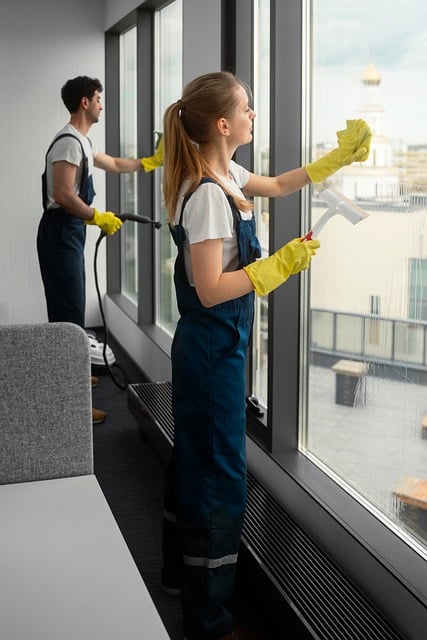Finding Office Cleaning Services and Understanding the Available Options
Office cleanliness significantly impacts workplace productivity, employee health, and the overall professional image of any business. Whether managing a small startup or a large corporate facility, understanding the various cleaning service options available helps decision-makers select the most appropriate solution for their specific needs. The cleaning industry offers diverse service models, each with distinct advantages depending on office size, budget constraints, and cleanliness requirements.

Different Models of Office Cleaning Services
Office cleaning services typically fall into several distinct operational models. Contract cleaning services provide scheduled maintenance according to predetermined agreements, offering consistency and reliability for businesses with regular cleaning needs. These services often include daily, weekly, or monthly visits depending on the contract terms. On-demand cleaning services, alternatively, provide flexibility for businesses that may not require regular maintenance but need occasional deep cleaning or special event preparation.
Another common model is the in-house cleaning staff, where businesses directly employ cleaning professionals as part of their organization. This approach offers greater control over cleaning procedures and immediate availability but requires managing additional employees. Specialized cleaning services focus on particular aspects of office maintenance, such as carpet cleaning, window washing, or post-construction cleanup, providing expert solutions for specific cleaning challenges.
Responsibilities in Office Cleaning Jobs
Office cleaning professionals handle diverse responsibilities crucial for maintaining hygienic workspaces. Daily tasks typically include emptying trash receptacles, vacuuming carpets and floors, dusting surfaces, and cleaning common areas like break rooms and restrooms. Office cleaners also sanitize high-touch surfaces such as doorknobs, light switches, and shared equipment—a practice that has gained increased importance following heightened awareness of workplace hygiene.
More comprehensive responsibilities often include floor maintenance (mopping, waxing, or buffing), window cleaning, restocking restroom supplies, and maintaining kitchen areas. Many office cleaning positions also involve special projects such as deep cleaning carpets, handling minor maintenance issues, or preparing spaces for company events. Professional cleaners must balance thoroughness with efficiency, often working during off-hours to minimize disruption to business operations while ensuring spaces are ready for the next workday.
Qualifications Needed to Work in This Sector
While entry-level office cleaning positions typically require minimal formal education, successful professionals in this field possess several important qualifications. Physical stamina is essential, as the job involves standing for extended periods, lifting supplies, and performing repetitive motions. Attention to detail ensures all areas receive proper cleaning and no spaces are overlooked. Time management skills help cleaners complete all required tasks within designated timeframes, especially when working independently or during limited after-hours windows.
Knowledge of proper cleaning techniques and safety protocols is crucial, including understanding appropriate cleaning agents for different surfaces and recognizing potential hazards. Many employers or clients prefer candidates with previous cleaning experience or relevant certifications from organizations like the International Sanitary Supply Association (ISSA) or Building Service Contractors Association International (BSCAI). As the industry evolves toward more environmentally conscious practices, familiarity with green cleaning methods and sustainable products becomes increasingly valuable.
Office Cleaning Service Options and Pricing
Office cleaning services vary significantly in scope, frequency, and cost structure. Understanding the market rates helps businesses budget appropriately while ensuring they receive adequate service levels. Pricing typically depends on office size, cleaning frequency, specific tasks requested, and geographic location.
| Service Type | Typical Frequency | Estimated Monthly Cost (1,000 sq ft office) |
|---|---|---|
| Basic Janitorial | 2-3 times weekly | $200-$400 |
| Full-Service Cleaning | 5 times weekly | $450-$750 |
| Deep Cleaning | Quarterly | $300-$700 per session |
| Specialty Services (windows, carpets) | As needed | $150-$400 per service |
| Day Porter Services | Daily (business hours) | $2,000-$3,500 |
Prices, rates, or cost estimates mentioned in this article are based on the latest available information but may change over time. Independent research is advised before making financial decisions.
Selecting the Right Office Cleaning Solution
Finding the appropriate cleaning solution involves assessing specific office needs and available resources. Small businesses might benefit from contracted services offering basic maintenance several times per week, while larger organizations with constant foot traffic could require dedicated day porters or full-time cleaning staff. Consider factors like square footage, number of employees, building materials (carpet vs. hard floors), and unique areas requiring special attention such as kitchen facilities or medical exam rooms.
When evaluating potential providers, request detailed proposals outlining included services, frequency, staff allocation, and quality control measures. Verify insurance coverage and employee background check policies to ensure compliance with security requirements, especially for businesses handling sensitive information. Many reputable cleaning companies now offer customizable service packages that allow businesses to select precisely the services they need while remaining within budget constraints.
Conclusion
Office cleaning services provide essential support for maintaining productive, healthy work environments across various industries. Understanding the different service models, typical responsibilities, and qualification requirements helps businesses make informed decisions when selecting cleaning solutions. By assessing specific needs and available options, organizations can find the right balance between thorough cleanliness and cost-effectiveness, ultimately contributing to overall workplace efficiency and professional image.




